WideHealth Winter School on Trustworthy AI
“Artificial Intelligence is the new electricity.” ~Andrew Ng. The world is changing rapidly, and digitalization is increasingly important, especially in industrial and health applications. Artificial Intelligence (AI) has become an integral part of our everyday lives. More urgently, it has the potential to radically change our way of life. We already use many AI-driven services. For example, in recommending movies, overcoming language barriers, or detecting diseases. This is just the beginning; AI will likely accompany and determine our everyday lives in almost every area.
However, such a significant change is inherently accompanied by skepticism and fear. “The real question is, when will we draft an artificial intelligence bill of rights? What will that consist of? And who will get to decide that?” ~Gray Scott. Who is liable in a world of autonomous driving if something goes wrong? Who is accountable for a misdiagnosis that could be the difference between life and death? How fair can an AI-based criminal justice system be? This inevitably leads us to the fact that we need to talk about ethics in an AI-driven society.
The WideHealth Winter School addresses these and many more questions with expert talks, open discourse, and potential solutions. We offer hands-on activities alongside lectures and panel discussions. Join us at the Hasso Plattner Institute for the Thematic School on Trustworthy AI from March 14 to March 17, 2023.
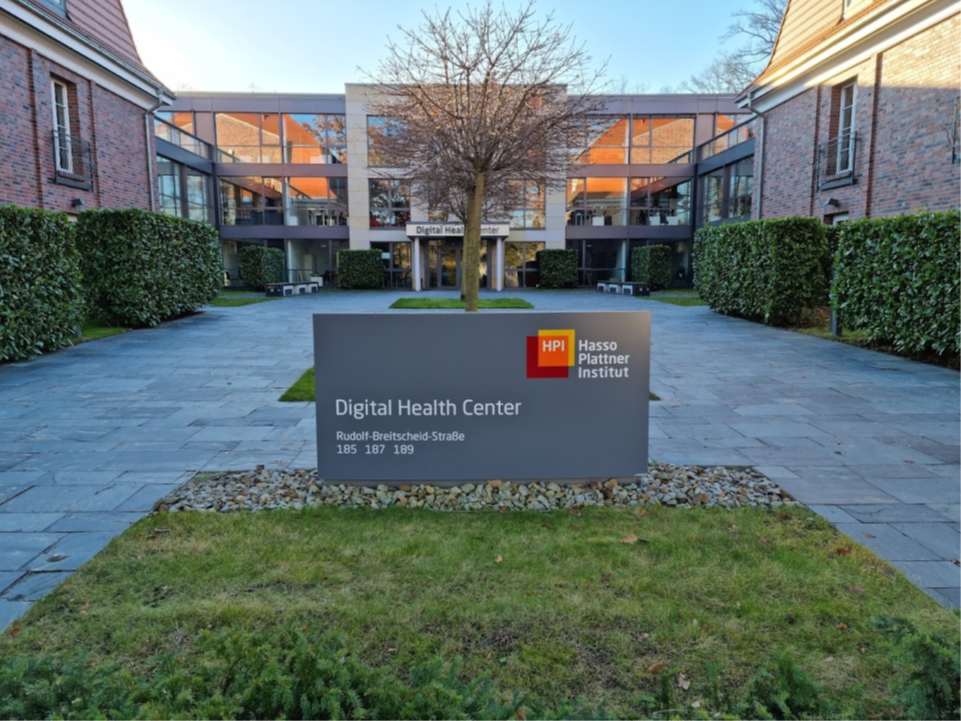
Registration
Registration is free of charge, but mandatory, and can be found at the registration link. Places are limited. If you are interested in the impact of Artificial Intelligence on our future, join us!
Venue information
The Winter School on Trustworthy AI will take place at the Building L of the Hasso Plattner Institute Campus. You can find directions how to reach the campus and the building on the following link.
Online attendance
There will be a live stream of the Winter School on Trustworthy AI on https://www.tele-task.de
Competition information
You can find the link to the challenge here.
Agenda
| Tuesday | 14.03.2023 | ||
| Time | Speaker | Session |
| 09:00-09:30 | Welcome and Registration | |
| 09:30-10:30 | Jana Fehr | Talk: Opening: Can We Trust AI? |
| 10:30-10:45 | Coffee Break | |
| 10:45-11:45 | Gerard DeMelo | Talk: AI: a Primer |
| 11:45-13:00 | Lunch | |
| 13:00-14:30 | Oscar Mayora (moderator), Mitja Luštrek, Christoph Lippert, Cathrine Bui & Robert Ranisch | Panel: Chances and Risks of AI |
| 14:30-14:45 | Coffee Break | |
| 14:45-15:30 | Stefan Kalabakov | Hands-on: Task Description: Hospital Readmission with Federated Learning, Dataset Description, Preparation & Exploration |
| 15:30-15:45 | Coffee Break | |
| 15:45-17:00 | Competition and Consultation | |
| Wednesday | 15.03.2023 | ||
| Time | Speaker | Session |
| 09:30-10:30 | Tiago Guerreiro | Talk: Good Research Strategies |
| 10:30-10:45 | Coffee Break | |
| 10:45-11:45 | Grégoire Montavon | Talk: Explainable AI |
| 11:45-13:00 | Lunch | |
| 13:00-14:30 | Bjarne Pfitzner | Lecture: Privacy, Security & Robustness of Federated Learning |
| 14:30-14:45 | Coffee Break | |
| 14:45-15:30 | Stefan Kalabakov | Hands-on: Intro to Tensorflow Federated (TFF) |
| 15:30-15:45 | Coffee Break | |
| 15:45-17:00 | Competition and Consultation | |
| Thursday | 16.03.2023 | ||
| Time | Speaker | Session |
| 09:30-10:30 | Paolo Traverso | Talk: AI Revolution is Here: Is It Only About Data? |
| 10:30-10:45 | Coffee Break | |
| 10:45-11:45 | Ralf Herbrich | Talk: Environmental Well-Being & Sustainability |
| 11:45-13:00 | Lunch | |
| 13:00-14:30 | Sebastian Lapuschkin | Lecture: From Post-Hoc Attributions to Human Understandable Explanations |
| 14:30-14:45 | Coffee Break | |
| 14:45-15:30 | Campus Tour | |
| 15:30-15:45 | Coffee Break | |
| 15:45-17:00 | Competition and Consultation | |
| Friday | 17.03.2023 | ||
| Time | Speaker | Session |
| 09:30-10:30 | Silvia Malesardi | Talk: Science Communication for Researchers |
| 10:30-10:45 | Coffee Break | |
| 10:45-11:45 | Solution Presentations | |
| 11:45-13:00 | Lunch | |
| 13:00-14:30 | Awards & Closing | |
Presenters
Lecture Title: “Opening: Can We Trust AI?”

Jana Fehr is a research assistant at the Digital Health – Machine Learning Group at the Hasso Plattner Institute (HPI) in Germany. She did her bachelor’s degree in Bioprocess Informatics at the University of Applied Sciences in Freising and her Master’s degree in Molecular Biotechnology in Heidelberg. Over the last four years, she worked in the area of auditing medical AI algorithms in real-world healthcare application settings under the lens of medical applicability, bias & fairness, external validity, transparency and trustworthiness as part of her dissertation.
Lecture Title: “AI: a Primer“

Gerard de Melo is a Full Professor at the Hasso Plattner Institute for Digital Engineering and at the University of Potsdam, where he holds the Chair for Artificial Intelligence and Intelligent Systems and heads the corresponding research group. Previously, he was a faculty member at Rutgers University in New Jersey and at Tsinghua University in Beijing, and a Post-Doctoral Research Scholar at ICSI/UC Berkeley. He has published over 150 papers on Natural Language Processing, Knowledge Graphs, and AI, and received a number of best paper awards.
Lecture Title: “Good Research Strategies“
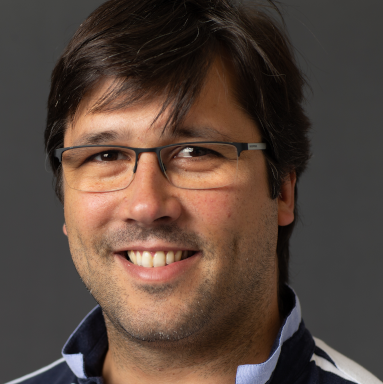
Tiago Guerreiro is a Professor at Universidade de Lisboa (Faculdade de Ciências) and a researcher at LASIGE. His main areas of expertise are Pervasive Healthcare, Mobile, and Accessible Computing. In these areas, he published 100+ peer-reviewed papers, and received awards for 10+ papers and an ACM Best of Computing award in 2016. He is Editor-in-Chief for ACM Transactions on Accessible Computing, was the Web for All General and Program Chair, in 2016 and 2015, respectively, and was ASSETS 2020 General Chair, among many other service roles. He was an invited expert supporting the European Commission in implementing the Web Accessibility Directive. He is the President of his institution’s Ethics Review Board, Vice-Director and past coordinator of LASIGE’s research line on Accessibility and Aging, and Coordinator of the Data Science Master at FCUL. He leads the Tech&People Lab.s.
Lecture Title: “Explainable AI”

Grégoire Montavon is a guest professor at the Institute for Computer Science at the Freie University, Berlin. Previous to that he was a senior researcher in the Machine Learning Group at the Technische University Berlin, and in the Berlin Institute for the Foundations of Learning and Data (BIFOLD). He received his Master’s degree in Communication Systems from École Polytechnique Fédérale de Lausanne in 2009, and a Ph.D. degree in Machine Learning from the Technische University Berlin in 2013. His research interests include explainable AI, deep neural networks, and unsupervised learning.
Lecture Title: “Privacy, Security & Robustness of Federated Learning“
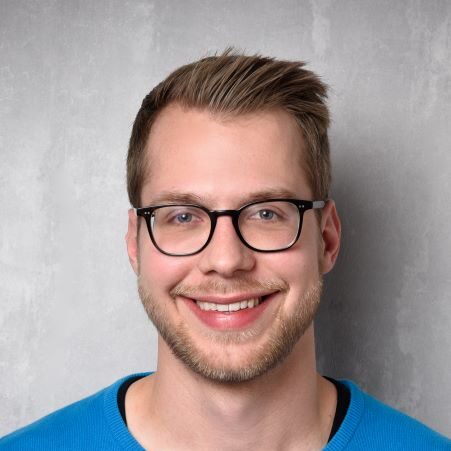
Bjarne Pfitzner is a research assistant and doctoral student at the Digital Health – Connected Healthcare Group at the Hasso Plattner Institute (HPI) in Germany. He did his integrated master’s degree in computing at Imperial College London. Over the last four years, he worked in the area of privacy-preserving machine learning, namely federated learning and fully-decentralised learning. Furthermore, he has experience in differential privacy, generative models, and distributed ledger technologies, which form the foundation of his dissertation journey.
Lecture Title: “Task Description: Hospital Readmission with Federated Learning, Dataset Description, Preparation & Exploration” and “Intro to Tensorflow Federated (TFF)”
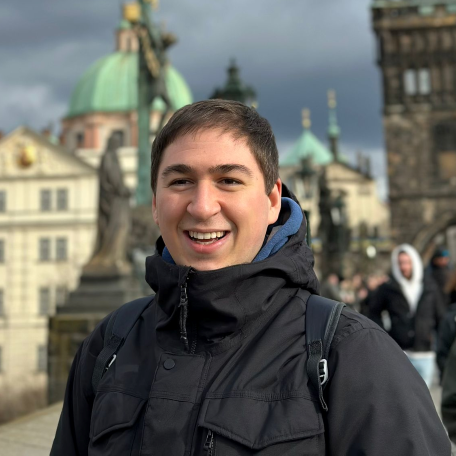
Stefan Kalabakov is a research assistant at the Digital Health – Connected Healthcare Group at the Hasso Plattner Institute (HPI) in Germany. He received his B.Sc. degree in Computer Technologies and Engineering from FEEIT in Skopje, Macedonia, and his M.Sc. degree at the Jožef Stefan International Postgraduate School in Ljubljana, Slovenia. As a PhD candidate his research interests include federated learning, electronic health records, and human activity recognition.
Lecture Title: “AI Revolution is Here: Is It Only About Data?“
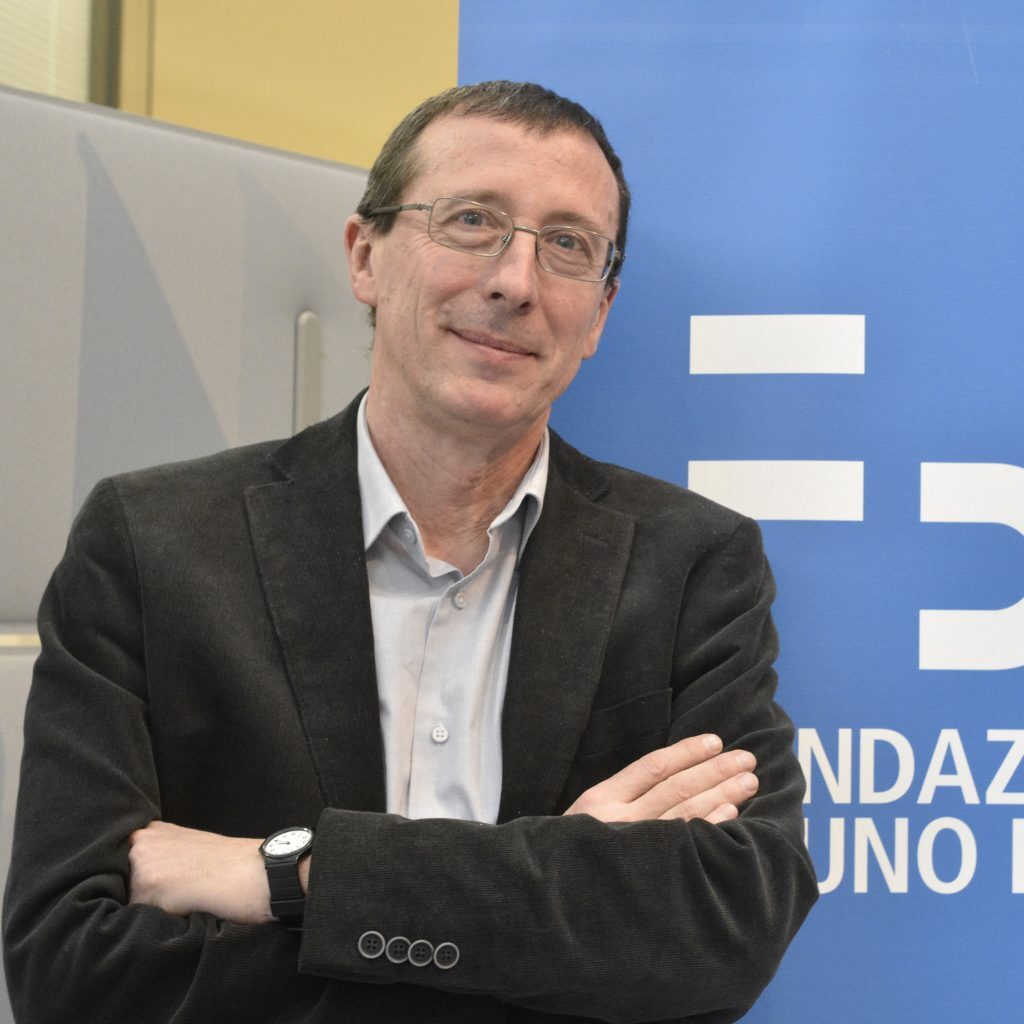
Paolo Traverso is the Director of Strategic Marketing and Business Development at Fondazione Bruno Kessler (FBK), a Research and Technology Organization (RTO) of more than 600 people working on Information and Communication Technologies, Sensors and Devices, and Social Sciences. FBK is active in research and industrial applications in the field of Artificial Intelligence, Safety and Cybersecurity, Complex Data Analytics, IoT, Embedded Systems, Health and WellBeing, Digital Transformation, Sustainable Energy, and Digital Industry. From 2007 until the end of 2020, he was the Director of the Center for Information Technology – IRST (FBK-ICT), one of the FBK research centers with about 350 researchers, project managers, developers, and PhD students. From 2011 to 2013, he was the Director of the Trento Research, Education, and Innovation System, the core partner of the European Institute of Innovation and Technology in ICT (the EIT Digital). From February 2017 until February 2019 Paolo Traverso was appointed as Chair of the Node Strategy Committee of the Italian node of EIT Digital, EIT Digital Italy. EIT DIGITAL (formerly EIT ICT Labs) is the European Institution of Innovation and Technology (EIT) in ICT, whose aim is to push research to the market. He was head of the Automated Reasoning Systems Division at the Institute for Scientific Research and Technology (IRST) from 2000 to 2007. From 1995 to 1999, he led the IRST lab working on software development and verification, automated planning and scheduling. He was the coordinator of industrial projects for the development of safety critical systems. He joined IRST in 1989, after working for four years in the advanced technology groups of different companies for management information consulting in Chicago, London, and Milan.
Lecture Title: “Environmental Well-Being & Sustainability“

Ralf Herbrich studied at Technical University of Berlin both for his Diploma degree in Computer Science with focus on Computer Graphics and Artificial Intelligence (AI) in 1997 and a PhD degree in Theoretical Statistics in 2000, respectively. Since 2022, he is a professor in Computer Science at Hasso Plattner Institute and the University of Potsdam and chair of the research group on Artificial Intelligence and Sustainability. For the past 25 years, he has worked in both basic and applied science: For the first 15 years of his professional life, he was predominantly working on the basic research himself, while focusing on managing applied science for the past 10 years. He has had the great fortune to work at Microsoft, Facebook, Amazon and Zalando. His research interests include approximate computing, Bayesian inference and decision making, game theory, information retrieval, natural language processing, computer vision, distributed systems, learning theory and knowledge representation and reasoning. He has published over 80 peer reviewed conference and journal papers in these fields.
Lecture Title: “From Post-Hoc Attributions to Human Understandable Explanations”

Sebastian Lapuschkin received his Ph.D. degree with distinction from the Berlin Institute of Technology in 2018 for his pioneering contributions to the field of Explainable Artificial Intelligence (XAI) and interpretable machine learning. From 2007 to 2013 he studied computer science (B. Sc. and M. Sc.) at the Berlin Institute of Technology, with a focus on software engineering and machine learning. Currently, he is the Head of the Explainable Artificial Intelligence at Fraunhofer Heinrich Hertz Institute (HHI) in Berlin. He is the recipient of multiple awards, including the Hugo-Geiger-Prize for outstanding doctoral achievement and the 2020 Pattern Recognition Best Paper Award. His work is focused on pushing the boundaries of XAI, e.g., for achieving human-understandable explanations, or towards the utilization of interpretable feedback for the improvement of machine learning systems and data. Further research interests include efficient machine learning and data analysis, data and algorithm visualization.
Lecture Title: “Science Communication for Researchers“
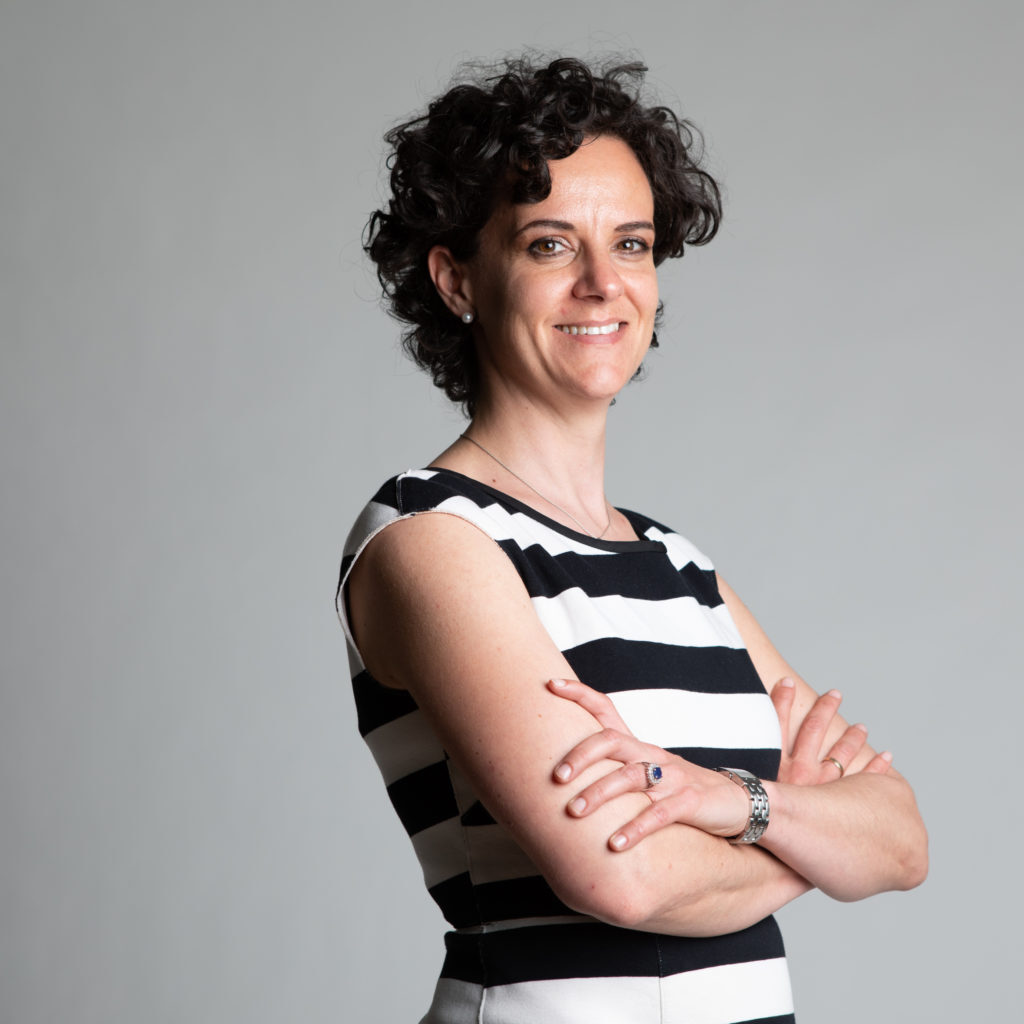
Silvia Malesardi works as the Chief Communication & External Realtions Officer for FBK, the top Research institute in Italy, ranked at the 1st place for scientific excellence within 3 different subject areas (ICT, History and Sociology) and for the economic and social impact. She holds a Bachelor’s degree in Communication sciences and master’s degree in “Media Communication & Cultural Events management”. She has 8+ years of experience as an international events manager, 8+ year experience as special project coordinator, and 6+ year experience as Head of Events and Communication Unit.
Panel Discussion on Chances and Risks of AI

Oscar Mayora is senior researcher at FBK and the head of the Digital Health Lab Unit at FBK Center for Health and Wellbeing and scientific coordinator for the Joint Research Unit between the Trentino Local Health Trust, the Province of Trento and FBK as part of Trentino Salute 4.0 Initiative. He is also an adjunct professor in the Faculty of Cognitive Sciences at University of Trento (Italy) and FH-Burgenland (Austria). He has published over 100 papers in International Conferences and Journals, participated as Guest Editor of special issues of Journals such as IEEE Intelligent Systems, EURASIP Signal Processing, Springer MONET and IMIA Journal on Methods of Information in Medicine in the topic of Pervasive Healthcare. Dr. Mayora has coordinated research projects at National and International level. He has been involved in projects in the topic of pervasive healthcare and assistive technologies sponsored by different funding instruments such as EC FP6, FP7, H2020 and ICT Labs among others with different roles.
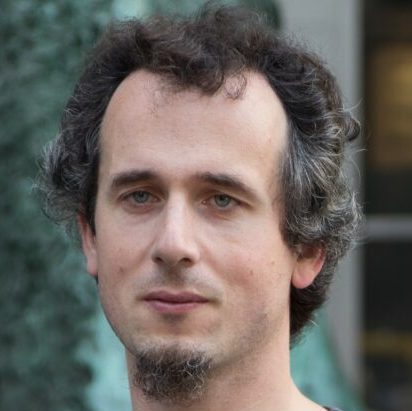
Mitja Lustrek is the Head of the Ambient Intelligence Group at the Department of Intelligent Systems at Jožef Stefan Institute, Ljubljana, Slovenia. He has received his PhD degree from the Faculty of Computer and Information Science of the University of Ljubljana. At that time, his work focused on heuristic search algorithms. Later, he worked on text mining, bioinformatics and other topics. Most of his career, though, his main research interest has been the interpretation of sensor and other health-related data using machine learning. He has been the principal investigator in numerous international research projects developing personal health systems and similar. He teaches ambient intelligence at Jožef Stefan International Postgraduate School. He has also served as the chair of the Slovenian Artificial Intelligence Society for two terms and is a member of several programme committees of international conferences.

Christoph Lippert is a Full Professor at the Hasso Plattner Institute for Digital Engineering and at the University of Potsdam, where he leads the research group for Digital Health & Machine Learning. Christoph Lippert’s research spans the fields of statistical genomics, medical image analysis and machine learning. Prior to joining the Hasso Plattner Institute, he has been doing research at Microsoft Research in Los Angeles and at Human Longevity, Inc. in Mountain View, Ca., developing AI models for the genetic analysis of heritable phenotypes. He has obtained his PhD in Bioinformatics from the University of Tübingen for his work on mixed models for genome-wide association studies at the Max Planck Institute for Intelligent Systems.
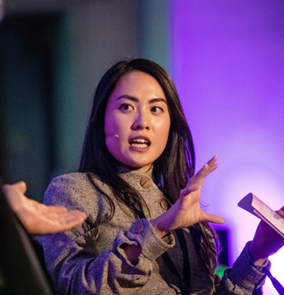
Cathrine Bui is passionate about gender bias in AI because she doesn’t want to live in a world where algorithms oppress her into a small corner of the world. She combines her past experience leading the EQUALS Research Coalition on digital gender equality and technical background in computer science to bridge the gap between tech engineers and social science for more Responsible AI. Currently, she is working on an AI tool to help doctors choose the right treatment for stroke patients as a research fellow at Charité University Hospital. She translates high-level EU guidelines on AI ethics into concrete, measurable requirements for the software engineering team. Her company, Bui Consulting, provides audits, keynotes, workshops, management consulting, and AI development services. Past customers include companies like Cisco and DNB Bank – the biggest bank in the Nordics. She is a professional speaker with over 6 years of experience, holding talks in different places ranging from an ASEAN Human Rights forum, and conferences in Mozambique and South Korea, to company events at Cisco.

Robert Ranisch is a Junior Professor of Medical Ethics at the Faculty of Health Sciences Brandenburg, University of Potsdam, and head of the research unit “Ethics of Genome Editing” at the Institute for Ethics and History of Medicine, University of Tübingen. Before joining the Faculty of Health Science Brandenburg he worked as a Lecturer at the International Centre for Ethics in Sciences and Humanities (IZEW) at the University of Tübingen and as the Managing Director of the Clinical Ethics Committee at the University Hospital of Tübingen. His areas of interest include biomedical ethics, digital ethics (with a focus on medicine), genetics and ethics, as well as organizational ethics.
Organizing Committee
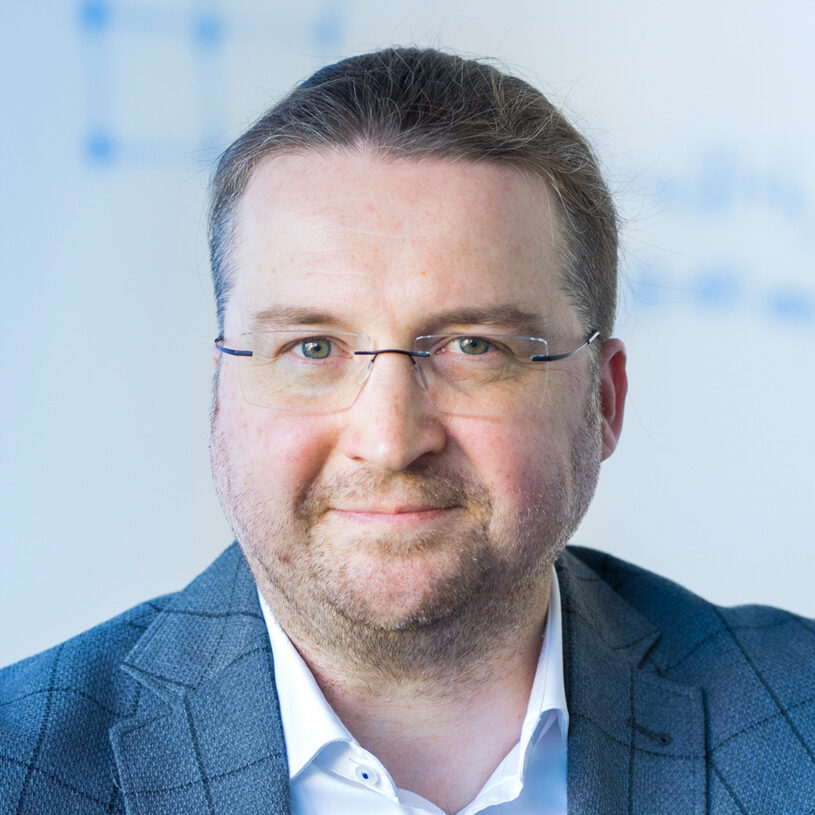
Bert Arnrich
Professor and head of the chair Digital Health – Connected Healthcare at the joint Digital Engineering Faculty of Hasso Plattner Institute (HPI) and the University of Potsdam.

Orhan Konak
PhD Student at Hasso Plattner Institute, Digital Engineering Faculty, University of Potsdam

Stefan Kalabakov
PhD Student at Hasso Plattner Institute, Digital Engineering Faculty, University of Potsdam
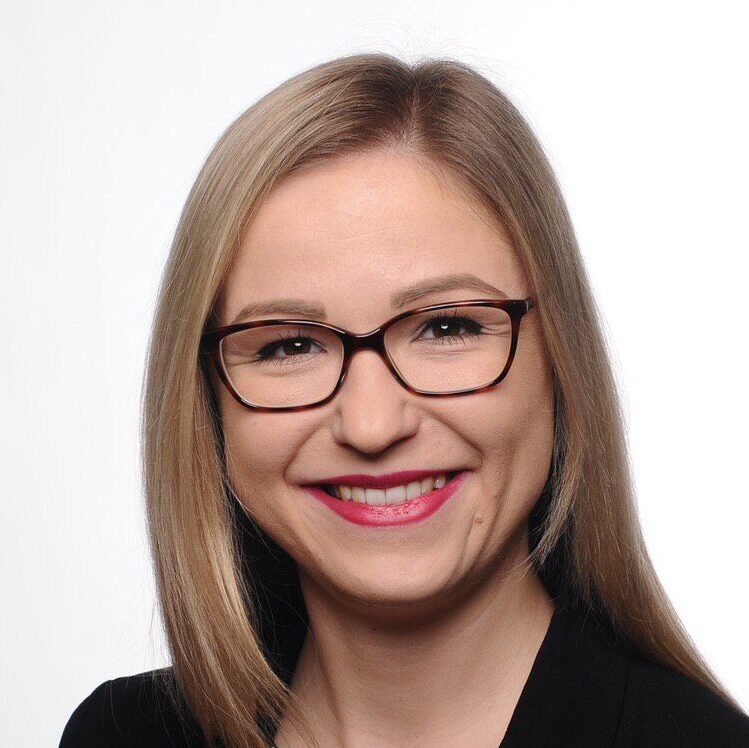
Kristina Kirsten
PhD Student at Hasso Plattner Institute, Digital Engineering Faculty, University of Potsdam

Marie-Kristin Kalz
Consultant for Digital Health at Hasso Plattner Institute
